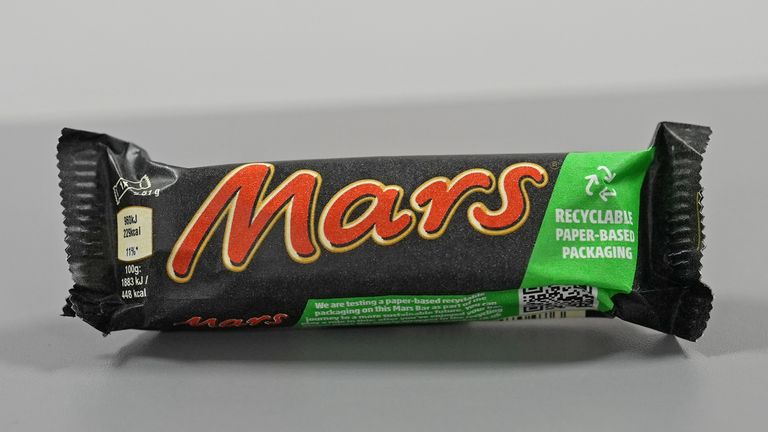In a bold move towards sustainability, Mars Food has unveiled a new look for its Mars bars, replacing their plastic wrappers with environmentally friendly paper packaging. This pilot project aims to explore more eco-friendly materials for Mars Food’s chocolate bars and contribute to the company’s sustainability goals. The revamped packaging will be initially rolled out in 500 Tesco stores across the UK, starting this week.
Mars follows in the footsteps of its chocolate rival, Nestle, which introduced paper packaging for Smarties in January 2021 and for some Quality Street sweets in December 2022. Nine out of the 11 traditional Quality Street sweets transitioned to paper-based packaging, while the Orange Crunch and Green Triangle retained their recyclable foil wrappers. Finding the right paper packaging solution presented a challenge for Mars. They had to strike a balance between providing adequate protection for the chocolate while ensuring food safety, quality, and integrity. The current plastic wrappers used for Mars bars and many other food items are not recyclable, contributing to the accumulation of single-use plastics in landfills and water bodies. This causes significant harm to the environment and wildlife, as plastic waste persists for years, breaking down into smaller particles that continue to impact ecosystems.
Governments around the world are taking action against single-use plastics. In the UK, a ban on plastic cutlery, plates, and polystyrene trays is set to be implemented following the government’s announcement in January. Plastic straws were already banned in the UK in 2020, and India followed suit in 2022. France also enforced a ban on single-use plastics in takeaway food establishments.
Mars Incorporated estimates that the switch to paper packaging will make 200 million bars per year carbon neutral in the UK, Ireland, and Canada. The company is committed to investing hundreds of millions of pounds to redesign packaging and reduce the use of virgin plastics by 25% in the short term. Increasing the use of recycled plastic in packaging is another key goal.
Tesco, partnering with Mars for this initiative, shares a similar vision of reducing plastic and packaging. Andrew Flood, Tesco’s packaging development manager, expressed his delight in collaborating with Mars, emphasizing the alignment of the initiative with Tesco’s strategy.
While some attempts to reduce plastic packaging have faced resistance from consumers, Mars, and other confectionery companies are taking a proactive approach. By transitioning to more sustainable materials like paper, they aim to address environmental concerns and meet consumer expectations for greener packaging options. This shift marks a significant milestone for the paper packaging industry, as major companies recognize the benefits of eco-friendly alternatives. The positive impact of paper-based packaging in reducing plastic waste, coupled with the commitment shown by global brands like Mars and Snickers, is expected to inspire other food companies to follow suit. The desire to eliminate as much plastic as possible from packaging is evident worldwide, and paper has emerged as a successful and sustainable alternative.

